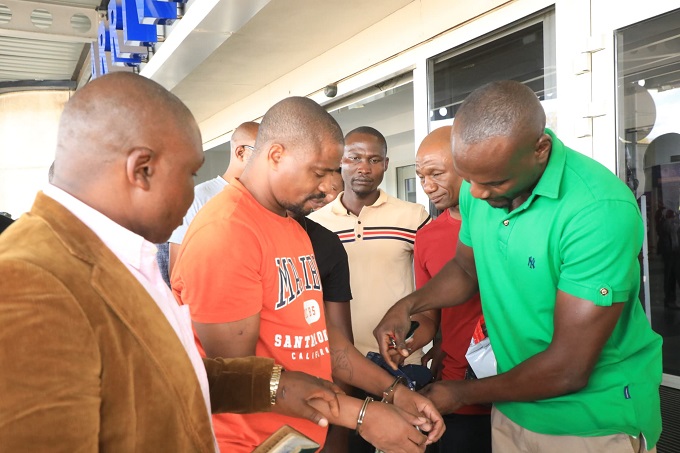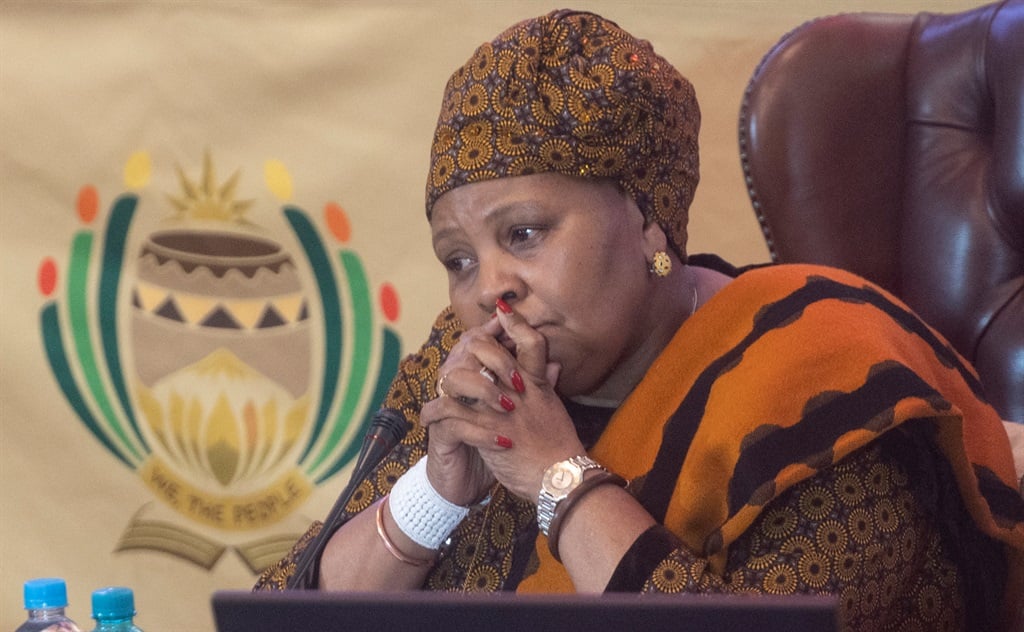THE race to succeed the soon-to-retire Chief Justice Godfrey Chidyausiku has taken a new dimension as warring Zanu PF factions prop up their preferred candidates amid fierce jostling triggered by President Robert Mugabe’s unresolved succession crisis.

This comes amid reports that both G40, a group of young Turks in Zanu PF which has coalesced around First Lady Grace Mugabe, and Vice-President Emmerson Mnangagwa’s faction do not want the outgoing Chidyausiku to have a role in deciding his successor.
Related Posts:
- Rita Makarau tipped to succeed Chidyausiku
- Chidyausiku Judgement that saved Jonathan Moyo: Full Details
- Zimbabwe Chief Justice Godfrey Chidyausiku who agreed Mugabe too old to rule retires
- Godfrey Chidyausiku agrees Mugabe is too old to rule Zimbabwe
- Zimbabwe Chief Justice Chidyausiku to step down, last judicial year address today
- Whip your kids:Chidyausiku
- Promiscuous Chidyausiku in secret marriage or co-habiting?
- Madhuku challenges Chidyausiku labour rulling at ConCourt
- Chidyausiku Exposes Tendai Biti As Bhasikiti Case Crumbles
- Jonathan Moyo slaps Zimpapers with $9m lawsuit
- President Mugabe owns 13 farms:Angry Mnangagwa team releases shocking details of farm ownership after Mugabe blocks Jonathan Moyo arrest
The two factions are locked in a bitter succession wrangle to replace 92-year-old Mugabe, who is now unfit to govern.
Sources in the judiciary said of the four candidates vying for the top post, current Judge President George Chiweshe is emerging Mnangagwa’s choice, given his strong links with the military, while Zimbabwe Electoral Commission (Zec) chair Justice Rita Makarau is preferred by G40.
Chidyausiku reaches the mandatory retirement age of 70 years in February next year.
Chiweshe was appointed to the bench in 2001. During his time in the army, he was also responsible for military tribunals. He was appointed Judge of the High Court in 2001 and then Judge President in April 2010.
Chiweshe was Zec chairman between 2005 and 2008. He presided over the sham 2008 elections which saw Zec failing to release presidential election results for a month, amid allegations that the commission tampered with figures to rescue Mugabe and Zanu PF from defeat.
Mugabe lost the first round of elections to MDC-T leader Morgan Tsvangirai who, however, officially failed to get the required 50-plus-one vote to be declared president, necessitating a run-off. Mugabe claimed victory in the run-off after Tsvangirai pulled out of the race citing widespread violence and intimidation of his supporters.
Makarau, who doubles as secretary of the Judicial Service Commission and chairperson of Zec, is seen by some as a better aspirant even though on merit Chidyausiku’s deputy Justice Luke Malaba is seen as the best candidate.
Makarau was appointed High Court Judge in December 2000. She became Judge President of the High Court in 2006. In 2010 she was appointed Supreme Court Judge, and moved to the Constitutional Court in 2013.
In 1997, Mugabe appointed her a non-constituency Member of Parliament on the basis of gender balance.
Makarau is regarded by some as a sound jurist, who made history by becoming Zimbabwe’s first female judge president in 2006.
The Zanu PF factions do not seem to be supporting the third candidate, Malaba, even if many in legal circles think he is the most competent and progressive candidate. This is because, sources say, “the system” does not trust him for political and regional reasons.
Malaba, it emerges, is viewed as an independent mind due to his dissenting judgments in the past which in some cases left the regime deflated.
In 2013, Malaba gave a devastating dissenting judgment in a case which compelled Mugabe to call for elections in July.
Seven out of nine Constitutional Court judges ruled that Mugabe violated his constitutional responsibilities by failing to declare polls by June 29.
But Malaba, in his dissenting opinion, said his colleagues’ ruling “defied logic” in finding Mugabe was in breach of his constitutional responsibilities “and at the same time authorising him to continue acting unlawfully” by proclaiming a July date.
“That is a very dangerous principle and has no basis in law. The principle of the rule of law just does not permit such an approach,” wrote Malaba.
Although Malaba is supposed to be the natural successor given his position as deputy chief justice and owing to his vast experience, he could be overlooked for political and even regional considerations as senior government officials, including Mugabe, are said to be in favour of the “politically correct” Chiweshe and Makarau.
Another candidate eyeing the post is Justice Paddington Garwe. He was appointed High Court Judge in 1993.
Garwe, widely seen as the dark horse in this race, became Judge President of the High Court in 2001 and was appointed a Supreme Court Judge in 2006. He was elevated to the Constitutional Court in 2013.-ZimInd





